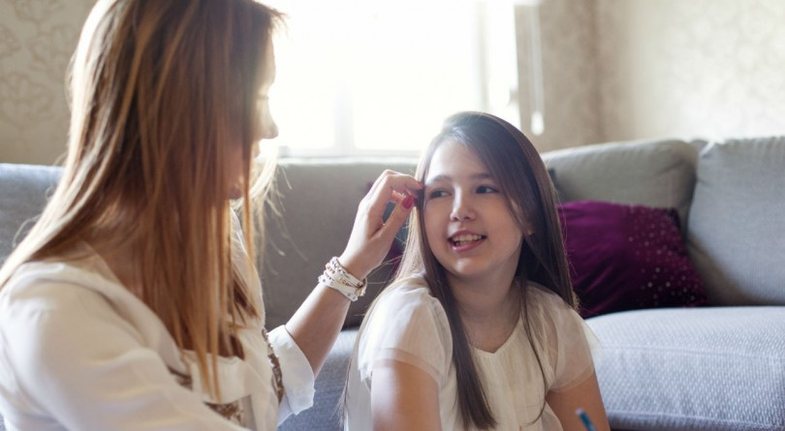
How to talk about sex with kids 0-2 years old
The process of talking about sex seems to begin before the children speak. This means that the names of the genitals, penis and vagina should be included in the speech, as they are terms that help children communicate later, even for health issues.
Children need to be taught to use the correct anatomical terms for the genitals. It may sound strange, but it should come naturally. It's like talking about the "arm" and the "wrist."
Sexual intercourse should be avoided. For example, phrases like "people with a penis" and "people with a vagina" should be used. In this way, parents teach children little by little about sex and gender identity.
If children tend to touch the genitals, which happens quickly, use them as an opportunity to explain that these are things that happen in the bedroom. Such a sentence is gentle, teaches children about intimacy. By no means do I want to convey that I recommend for the mother to be inactive.
How to talk about sex with children 2-5 years old
Of importance at this age is learning about inappropriate boundaries and touches. Children need to understand that decisions about their bodies belong only to them. Thus they become more careful to touch or harass others. It is important to convey the idea that they can talk to you about any inappropriate action.
At this age, children are curious about each other?s bodies and parents need to accept this curiosity and use it as a moment to discuss family rules and values. Instead of making them feel ashamed, explain that it is not appropriate for the genitals to be exposed to others.
Also, children of this age group tend to ask how babies are made. Experts suggest not to lie, just to make sure the process is tailored to the child's language. Other types of families and other ways of bringing a child to life should also be mentioned, because children need to be familiar with the different ways of building a family.
How to talk about sex with children 6-8 years old
At this age, parents need to talk about online security. It does not matter at what age the child will be introduced online or use social networking platforms, it is important to be familiar with online security. At this point, you should talk about the importance of not sharing photos online with strangers or acquaintances. Maybe you should talk to them about pornography without having to present it as something bad, but just as a page for adults.
At this age, children tend to explore their bodies and this includes masturbation. Frame it as something that, while normal, should be done privately.
Also, at this age, sexual abuse should be talked about. It should start with the basics, such as the fact that no one has the right to touch their body without permission.
Children's bodies begin to change and here we refer to puberty. If you see fit, you can use old photos to describe the difference over time, so that they get used little by little to the changes in puberty.
How to talk about sex with children 9-12 years old
At this age, children need to be told about sexism and sexualization. Use examples found in the media and the community. If anyone thinks boys should have short hair, use it as a discussion. These conversations can be boring for children, but they help them to overcome stereotypes.
This age is delicate, especially for girls who are starting and have difficulty with the body. Show them that they are normal developments.
Another thing to talk about is safe sex. For parents, this topic of discussion is difficult, but the risks must be prevented.
Since this age has a lot of freedom on the internet, it is important to talk about online security and set rules. Treat the risk of distributing nude photos.
How to talk about sex with teens
You will understand the importance of this conversation as children are no longer teenagers. If you are open to such topics, children will be more comfortable and calm to talk to you. Listen to them.
Conversations about healthy relationships are essential. You can also share your past stories or stories of people you know.
During adolescence, children need to be empowered as much as possible to be able to assess the risks and make the best decisions.
Source: Today's Parent




